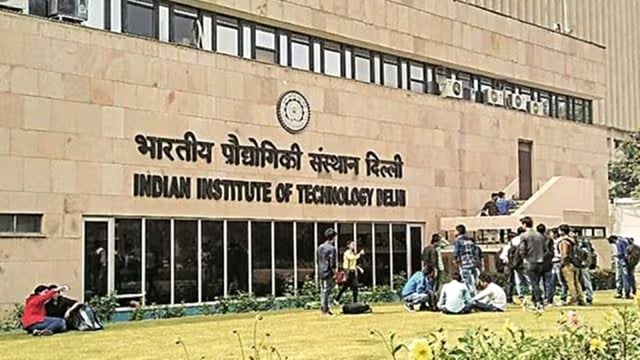To ease academic pressure on students, IIT Delhi revamps curriculum, reduces class size
The new curriculum will be implemented starting from the 2025-26 academic year
 The programme offers live online classes led by IIT Delhi faculty, with real-world case studies, contemporary examples, and peer discussions.
The programme offers live online classes led by IIT Delhi faculty, with real-world case studies, contemporary examples, and peer discussions.In a move aimed at reducing academic pressure on first-year students, the Indian Institute of Technology (IIT) Delhi has introduced a revised curriculum — it mandates smaller classroom sizes and reduces the total credit load across undergraduate, postgraduate, and PhD programmes.
The new curriculum will be implemented from the 2025-26 academic year.
“All first-year courses are now mandated to have small class sizes,” the institute said in a statement Tuesday, signalling a structural move to allow more personalised attention and improve student-faculty interaction.
Additionally, “all programmes have a small reduction in credits, with a more focused core,” it said.
The revisions follow a comprehensive curriculum review that began in 2022 and incorporated feedback from students, alumni, and industry experts. The new undergraduate programme is described as “an outcomes-based, flexible curriculum” that allows students to pursue minors, specialisations, and an optional honours programme.
“We have reviewed and revamped our curriculum to make our graduates future-ready,” said Professor Rangan Banerjee, Director of IIT-Delhi. “The new curriculum has emerged after extensive feedback from stakeholders and provides flexibility and hands-on learning for our students.”
The reduction in credit requirements is designed to help students explore electives beyond their core academic units. “Many branches are now offering a flexible core curriculum,” the statement said, allowing students to pursue additional qualifications such as advanced M.Tech./MS (Research) degrees.
To further support students in their first year, the curriculum introduces early departmental exposure, enhanced lab and tutorial components, and greater emphasis on interactive, hands-on teaching. “Laboratory and tutorial components in most departmental courses allow students to engage with faculty in a deep and meaningful manner,” the institute said.
Beyond easing academic load, the curriculum has modules on creative expression and ethical reasoning.
In a first, AI-based code generators will also be integrated into the foundational programming course to help students “write better programs for more complex problems in less time”.
The changes extend to postgraduate and PhD programmes as well, with the introduction of project-based capstone components, industry-linked internships, and formalised pathways for interdisciplinary research and conversion to doctoral degrees.
In 2025-26, the institute will also launch new academic programmes, including a BTech in Design, a BS in Chemistry, and an MTech in Photonics.







